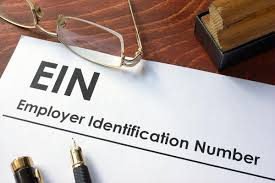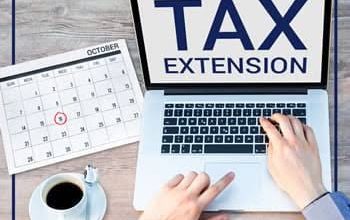For tax purposes, your firm is identified by a special nine-digit number called an EIN number. It is comparable to a social security number but is exclusively used for business-related transactions. For business owners to open bank accounts, get licenses, and file tax returns, they need an EIN. It’s best to send in an application as soon as you start thinking about your business plan. By doing this, you won’t have to wait as long to get the money or permits your business needs.
What Is EIN Number?
Employer identification number (EIN) is the name of a special number that the Internal Revenue Service (IRS) gives to a business so that it can be found quickly. Employers frequently utilize EINs for the purpose of reporting taxes. The number is nine digits long and looks like XX-XXXXXXX. Direct applications to the IRS from businesses result in the issuance of an EIN number, which typically happens right away.
How to Get an Employer Identification Number
It is free to apply for an EIN. submit applications by phone, fax, mail, internet, or by phone for people who will conduct business in the United States but are not citizens of the country. It’s a simple and straightforward approach.
Form SS-4: Applicants are to complete applications for Employer Identification Number, which is available on the IRS website.
For the IRS to give an EIN, the application must include the following information: the name and individual taxpayer identification number of the company’s main officer, partner, trustor, owner, or any other title, as well as their name. Among the details that must be on the form are:
- Who or what it is
- Applications’ justifications (new business, change of organization, IRS withholding requirement compliance)
- beginning or acquisition date
- the main sector of business
For a business to apply online for an EIN, the location must be in the United States or one of its territories.
Benefits of an Employer Identification Number
Each business that has a valid EIN has a unique EIN. Even if the initial employer goes out of business, the numbers remain in effect forever and are never transferred to another company.
Having one is its principal benefit. Without it, you cannot operate your business. Before beginning, you must obtain an employer identification number. Moreover, the following requires an EIN:
- selecting and compensating personnel
- opening credit accounts, getting loans, and investing extra money
- preserving corporate barriers
- filing company taxes and state tax registration
Having an EIN enables you to keep your personal and corporate finances separate. By doing this, you may shield your personal data and keep it safe from identity theft.
As is normal for self-employed people like subcontractors, the main contractor will use the subcontractor’s EIN to report all business income to the IRS.
Applying for an EIN Online
The fastest and most accurate way to get an EIN for your business is to do it online. The EIN is issued immediately after the “interview style” application has been submitted with all the fields accurately filled in.
Even though you might receive your number right away, you’ll need to wait up to two weeks before you can submit an electronic return, make an electronic deposit, or successfully complete the IRS Taxpayer Identification Number (TIN) matching program. During this time, your business can use its EIN for other things, like opening bank accounts and sending paper tax returns.
CT advice: Be ready when submitting an online EIN application. You have one session to finish the application. You cannot store your information or come back at a later time. In addition, inactive internet sessions expire after 15 minutes. It’s a good idea to finish Form SS-4 (Application for Employer Identification Number) in advance so you’ll be ready to accurately fill out all the fields. If your company meets the requirements, you can submit an online application.
Understanding Employer Identification Number(EIN)
The IRS gives US-based businesses an EIN. Often called a Federal Tax ID Number. Business tax returns and other legal processes require EINs.
One EIN per firm is to avoid duplicates. If your parent company owns multiple firms, you can get multiple EINs.
ABC Corporation employs John Smith and Jane Doe. ABC pays them. If ABC Corporation solely employs John Smith, he must report his income on his tax return. Jane Doe must report her ABC Business income on her taxes.
If they file for bankruptcy or close, a multi-location corporation must get a new EIN.
A nine-digit EIN, issued by the IRS, identifies an employer (IRS). Sometimes called a Federal tax ID number. EINs record corporate and employment taxes.
How Do I Find Out What My Ein Number Is?
An employer identification number can be found on tax returns, credit applications, bank account applications, state licenses and permits, the paperwork required to report payments made by your company to independent contractors, and other documents.
What Is EIN Number Used For?
An employer identification number (EIN) is a nine-digit number that the IRS gives to each business. It is used to find tax accounts for employers and a few other kinds of people who are not employers. The IRS utilizes the number to track down people who must submit different company tax forms. employers, sole proprietors, corporations, partnerships, non-profits, trusts, estates of the dead, some people, government agencies, and other business entities use EIN. You might need to apply for a new number if you already have an EIN and your company changes ownership or organizational structure.
Is a EIN Number Free?
The Federal Revenue Service (IRS) provides a free service for requesting an Employer Identification Number (EIN). Online sites that charge for this complimentary service should be avoided.
Who Needs an EIN Number?
EINs can be utilized in a number of ways. The following are typical applications:
#1. Corporations
An organization that is legally distinct from its owners and liable for its own debts and liabilities must have its own EIN. When a corporation changes its name, becomes a subsidiary of another, becomes a sole proprietorship or partnership, or gets a new charter, it may need a new EIN.
#2. Partnerships
A partnership is when two or more people work together to run a business. Except for select joint ventures formed solely to split costs, most partnerships call for EINs. New EINs may be needed when a partner becomes a sole proprietor, a partnership incorporates, or a partnership dissolves and there is a new one.
#3 Limited Liability Companies
Many limited liability companies (LLCs) are required to obtain EINs. If there are two or more owners, the business can choose to be a corporation or a partnership, but it still needs to get its own EIN. The owner of a single-member LLC might not need to get an EIN unless the business has one or more employees or is going bankrupt.
#4. Estates of Departed People
Estates may require an EIN if a person passes away. This is frequently in need when there are assets that must be probated before being dispersed. The estate is liable for the debts and liabilities of the deceased. A personal representative or executor is an example of a fiduciary who can apply for and use an EIN for an estate. The courts choose this person to handle and distribute the estate of a person who has died.
401(k) programs for employees Health and retirement programs for employees must have their own EINs. This includes profit-sharing plans, SIMPLE IRAs, SEP IRAs, Keogh and Solo 401(k) plans for a single participant and other employer-sponsored benefit plans.
#5. Private Service Companies
If your company’s principal activity was providing personal services to the owners, such as accounting, consulting, architectural, engineering, actuarial science, health, law, or the performing arts, you may need a different EIN for tax purposes.
Do EIN Numbers Expire?
An EIN is a business entity’s official federal taxpayer identification number once it has been given to that company. The EIN is never transferred to another business entity or reused, regardless of whether it has ever been used to file federal tax returns.
Conclusion
Finally, you can let the IRS know if your company shuts down or if an estate or trust has been completely handled and distributed so they can close the tax account connected to that EIN. Owners of businesses and other responsible parties must make sure that their EINs are used exclusively for business-related activities and not in substitution of the owner’s own Social Security number.
Related Articles
- HOW TO GET AN EIN NUMBER: Detailed Guide
- HOW TO GET STARTUP BUSINESS LOANS WITH NO REVENUE IN 2023
- THE TIPS FOR BUYING A USED CAR: Complete Guide & Reliable Tips
- 10 Best STARTUP BUSINESS CREDIT CARDS In 2023






